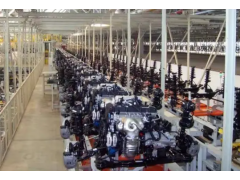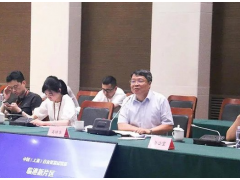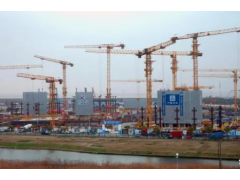On November 15, 2020, the ten ASEAN countries, China, Australia, Japan, South Korea, and New Zealand signed the "Regional Comprehensive Economic Partnership Agreement" (RCEP), and promoted the agreement to come into effect on January 1, 2022. The total population, gross domestic product (GDP), and trade in goods of the RCEP region account for about 30% of the world. Just on June 2 this year, RCEP officially came into effect for the Philippines, which marks that RCEP has come into full effect for the 15 signatory countries, and the world's largest free trade zone has entered a new stage of full implementation.
From June 9th to 10th, the 2023 RCEP Local Government and Sister City Cooperation (Huangshan) Forum was held in Huangshan City, Anhui Province. about 500 Chinese and foreign guests gathered together to discuss new opportunities for RCEP cooperation and seek a new future of mutual benefit and win-win results.
Exploring the certainty of development in a world full of uncertainties has become the source of confidence in building global economic growth. Guests from all over the world gathered in the beautiful Huangshan Mountain, aiming to promote mutual understanding, business opportunities, friendship and cooperation among local governments of RCEP member states through this forum, and contribute to deepening cooperation among RCEP member states and achieving mutual benefit and win-win results.
During the event, 2 sister city friendship projects, 6 economic and trade cooperation projects, and 5 humanities cooperation projects were signed, involving artificial intelligence and blockchain, cultural tourism, education and medical care and other fields. From economy and trade to industrial chain, to cultural tourism, representatives of participating RCEP member states expressed their expectations for strengthening cooperation.
Set sail: the common market is more prosperous
With the theme of "Regional Cooperation for a Win-Win Future", this forum released a signal for RCEP member states to strengthen regional cooperation and share development opportunities.
"RCEP provides a good opportunity for member states to open their markets and expand their market scope. It can promote economic and trade cooperation among member states and provide support for the establishment of a multi-party trading system." Anna Roben, Advisor to the Secretary-General of ASEAN and Deputy Secretary-General of the ASEAN Economic Community Neo said at the forum.
On the day when RCEP came into effect for the Philippines, the customs officers of Chizhou Customs affiliated to Hefei Customs issued a certificate of origin for the chemical raw materials exported to the Philippines by Anhui Xingxin New Materials Co., Ltd. Tariff reduction and exemption of 28,000 yuan.
"Before exporting to the Philippines and other ASEAN countries, the tariffs were relatively high. Later, under the guidance of Chizhou Customs, I applied for the China-ASEAN Certificate of Origin and enjoyed certain tariff reductions. Now through the issuance of the RCEP Certificate of Origin, the tariffs are further reduced to zero. , which saves the company's overall cost and helps us further expand overseas markets." said Lu Yuxiang, manager of the supply and marketing department of Anhui Xingxin New Material Co., Ltd.
In addition to the Philippines, this company, which is engaged in the research and development of new material technology and the manufacture of basic chemical raw materials, also has close economic and trade relations with Vietnam, Thailand, South Korea and other RCEP member countries. "The implementation of RCEP has brought us multiple dividends such as tariff reduction and exemption, and improved customs clearance efficiency. Last year, the company's foreign trade volume exceeded US$1.2 million, and it is expected to exceed US$2 million this year." Lu Yuxiang said.
According to statistics from the General Administration of Customs, in 2022, China's imports and exports with the other 14 RCEP members will reach 12.95 trillion yuan, an increase of 7.5%, accounting for 30.8% of China's total foreign trade imports and exports. There are 8 other RCEP member countries whose import and export growth rate with China exceeds double digits.
"I am very happy to see the growth of trade between China and RCEP member countries. For example, in 2022, China's import and export with Indonesia, Singapore, Myanmar, Cambodia and Laos will all increase by more than 20%. These data confirm the economic benefits brought by RCEP. said Gao Jinhong, Secretary-General of ASEAN.
Stable chain and strong chain: the industrial layout is more reasonable
"The RCEP agreement has been in force for more than a year, and the tariff reduction and customs clearance time has been shortened, which has brought real benefits to Japanese consumers. The RCEP agreement can strengthen cooperation in the industrial chain, such as the automobile manufacturing industry. A car has many Parts are a huge project that requires the cooperation of all parties. Many parts from China are exported to Japan. After the production in Japan is completed, the cars are then exported to RCEP member countries, including China. Now the customs clearance of goods is faster, which greatly The production efficiency has been improved." Nobu Sasahara, director of the Shanghai Office of the Japan-China Economic Association, told reporters.
According to reports, the Japan-China Economic Association has nearly 300 member companies. Shinobu Sasahara said that these companies are very concerned about RCEP-related policies and are considering how to better lay out their respective industrial chains in the region.
Cumulative rules of origin, back-to-back certificates of origin, approved exporter system... A series of institutional innovations in RCEP will help enterprises in the region significantly reduce costs, improve trade efficiency, and strengthen cooperation in the industrial chain and supply chain.
In the branch of Anhui Heli Co., Ltd. located in Bangkok, Thailand, two warehouses with a total area of 6,000 square meters store various types of forklifts. After RCEP takes effect, forklifts will be shipped directly from here to Southeast Asian countries such as Vietnam and the Philippines every month, and enjoy zero-tariff benefits through the policy of back-to-back certificates of origin.
"By issuing back-to-back certificates of origin, products directly exported from Thailand to other countries can enjoy the same preferential treatment as exports from China, which allows us to serve surrounding markets more conveniently and improve competitiveness." General Manager of Anhui Heli Co., Ltd. Zhou Jun said that the sharing of "institutional dividends" between regions has greatly improved trade efficiency and enhanced inter-regional exchanges and cooperation.
On the afternoon of the 9th, at the Economic, Trade and Development Zone Cooperation Symposium of RCEP Member States, Su Qingyi, Deputy Director of the International Trade Research Office of the Institute of World Economics and Politics, Chinese Academy of Social Sciences, said that the development potential of the regional industrial chain mainly depends on the echelon structure, that is, within the region Different economies are in different positions in the industrial chain, forming the complementarity of industrial types and different links. The RCEP regional industrial chain has a variety of industries and a deep division of labor, so the development potential is huge.
"Agricultural products are closely related to climate. The different climatic conditions of RCEP member countries provide an excellent environment for the production and processing of different agricultural products. We will further leverage this advantage to promote development and cooperation." Zeng Jinsong, vice president of Thailand's Chia Pokphand Group Said at the meeting.
Integration of culture and tourism: people-to-people bonds are closer
The relationship between countries lies in the mutual affinity between the people, and the friendship between the people lies in the mutual understanding of the hearts. Tourism is a bridge to spread civilization, exchange culture and enhance friendship. Chiang Mai, Bali, Angkor Wat, Huangshan... At the RCEP member countries' cultural and tourism industry cooperation forum, representatives recommended the classic tourist attractions of their respective countries to discuss the smooth circulation of the regional tourism market and deepen the regional culture. Tourism exchanges and cooperation will add "cultural tourism" momentum to the implementation of the RCEP agreement and regional economic growth.
"The friendship between China and Thailand has a long history. Anhui Province and Thailand have a good cooperative relationship in the fields of tourism, economy and trade. Currently, Hefei, Anhui Province has three direct flights to Bangkok, Thailand." said Luo Taidong, deputy director of the Shanghai Office of the National Tourism Administration of Thailand. , 5 million Chinese tourists are expected to visit Thailand this year.
Luo Taidong said that when mentioning Anhui, many Thai people will immediately think of Mount Huangshan, which has a high status in the hearts of Thai people.
"I hope that by participating in this series of forum activities, representatives from relevant parties in Thailand can expand Thailand's popularity in the field of health care tourism and create more business opportunities for cooperation. At the same time, strengthen the cooperation between Thailand and RCEP member countries in the fields of medical care, health care and tourism Cooperation." Thailand's Deputy Prime Minister Wisanu Koyan delivered a video speech at the opening ceremony of the event.
Yang Jinsong, director of the International Research Institute of China Tourism Academy, said that tourism exchanges and cooperation among the 15 member states existed before the signing of RCEP, which has formed a good foundation for further strengthening cooperation among member states.
According to him, Vietnam, Thailand, Japan, South Korea and other RCEP member countries accounted for 10 of the top 15 countries or regions among the top 15 outbound tourist destinations for Chinese citizens in 2019. Inbound tourists from RCEP member countries account for more than two-thirds of the inbound tourism market. RCEP member countries such as South Korea, Myanmar, Vietnam, Japan, Malaysia, the Philippines, and Singapore have been among the top ten foreign tourist source markets for a long time. This shows that tourism cooperation among RCEP member countries is very important to China and other countries.
In addition, the world's largest integrated market based on free trade also provides RCEP member countries with rich, tangible and tangible opportunities for tourism exchanges and cooperation. Visa exemption, visa on arrival, and subsequent related supporting measures will make regional travel between China and RCEP partners more convenient, Yang Jinsong said.
As stated in the "2023 RCEP Huangshan Forum Proposal" released by all participants during the event, "Enhance mutual understanding and discuss cultural and tourism cooperation. We will promote people-to-people bonds through mutual learning exchanges and dialogues between civilizations, and carry out cultural and tourism exchanges in an all-round way. , Strengthen the protection and inheritance of cultural heritage, deepen cooperation in the creation and promotion of cultural tourism routes, and jointly promote the integrated development of culture and tourism.”




